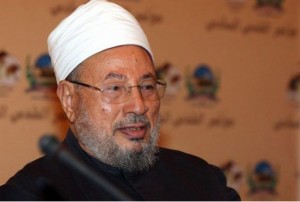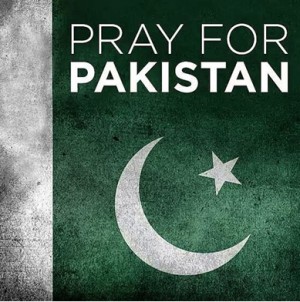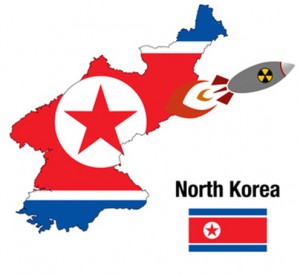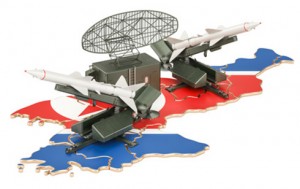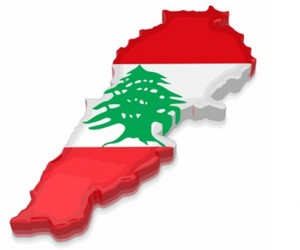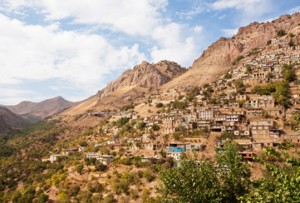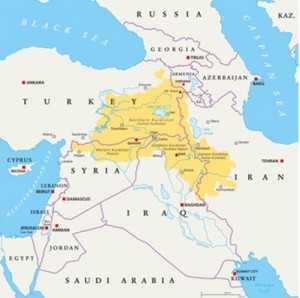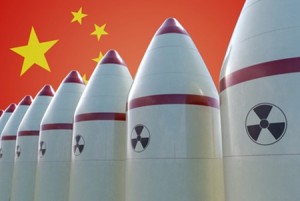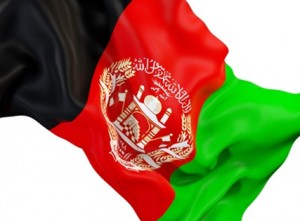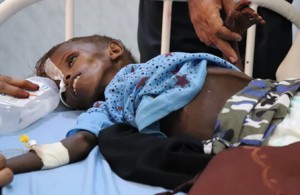Displaying items by tag: Asia
Qatar's Qaradawi Problem
Earlier this year, President Donald Trump accused Qatar of funding and promoting terrorism all over the world.
“Qatar has funded terrorism at a very high level,” he said, and it seems many in the White House shared his view.
Former White House Chief Strategist Steve Bannon had this to say about Qatar during a discussion at The Hudson Institute this week: “I don’t think it was just by happenstance that two weeks after the summit (in Riyadh) that we saw the blockade by the United Arab Emirates and Bahrain and Egypt and the king of Saudi Arabia on Qatar.”
Bannon also said repeatedly in his remarks that the Qatar situation was more important than the crisis in North Korea.
“I think the single most important thing that’s happening in the world is the situation in Qatar,” he said, expressing his support for the blockade.
Bannon was joined at the event by former U.S. Secretary of Defense Leon Panetta and CIA Director Robert Petraeus, both of whom also expressed concern about Qatar’s ties to terrorism, terror financing, and some of the Islamic world’s hate preachers.
Exhibit A is Yusuf Al-Qaradawi, the Egyptian-born cleric and religious leader who is now a Qatari citizen and has used Al-Jazeera, Qatar’s state-funded media outlet, to spread a message of hate across much of the Middle East.
If the Trump administration hopes to help end the ongoing blockade on Qatar, then it must pressure the Gulf nation to distance itself from hate preachers, especially Qaradawi, and allow him and others on the list to face consequences.
For many years Qaradawi’s talk show on Al Jazeera has condoned and encouraged suicide bombings especially against Israelis. The controversial preacher has endorsed Hitler and the attempted genocide of the Jewish people throughout history.
“The last punishment was carried out by Hitler. By means of all the things he did to them — even though they exaggerated this issue — he managed to put them in their place,” he has said. “This was divine punishment for them.”
Qaradawi has also suggested that homosexuals should be punished either by being burned or thrown off a building. The Islamic State group put his theories into practice when it chose to execute gay men in that very way.
Qaradawi’s views have resulted in bans on Qatari citizens entering several countries, including the United States, the United Kingdom, Tunisia and France.
In many ways his personal fortunes reflect those of the emirate of Qatar which he now calls home. Not long ago he was respected across the globe; now he is an international pariah.
Qaradawi is also on a list created by Saudi Arabia, UAE, Bahrain and Egypt of 59 people and 12 Qatari entities that are accused of promoting terror. Qatar has also repeatedly ignored extradition requests for Qaradawi from Egypt that began in 2015 when the cleric called for jihad in Egypt after the ouster of the Muslim Brotherhood.
Since the beginning of the crisis, Qatar has not backed down from its love for Qaradawi; he even attended a Ramadan dinner with Qatar’s ruling emir.
Qatar must also disavow Qaradawi and cast out such “religious leaders” if they want to once again be viewed as a reliable anti-terror partner. Qaradawi is not merely an example of Qatar’s support for terrorism; he is a reflection of what unchecked and unchallenged religious authority looks like, and his support for terrorists like Hamas and the Muslim Brotherhood, his calls for violence, “resistance” and jihad must be opposed by all those who favor freedom, peace and justice.
Some of the demands on Qatar — such as shutting down Al-Jazeera — may be unrealistic but if Qatar really wants the rest of the world to believe it opposes terrorism, it could start by deporting one of its most fervent endorsers.
Lianne Hikind is a professional writer in Florida and small business owner. She has been previously published by the Media Research Center and the Times of Israel. She was formerly on the board of Great Things for Israel.
The views expressed in this opinion article are solely those of their author and are not necessarily either shared or endorsed by the owners of this website.
By: Lianne Hikind on October 31, 2017 at 3:35pm
CONTINUED FOCUSED PRAYER FOR CHRISTIANS IN QATAR
Christians in Qatar are requesting prayers for the current diplomatic crisis their country is in. A growing number of other Arab countries have cut all ties with Qatar. The future for Qatar and its hundreds of thousands of migrant workers – tens of thousands of those being Christian believers – is unclear.
Open Doors spoke to several Christian believers living in Qatar. All of them asked for prayers for the developing situation. Saudi Arabia, UAE, Bahrain, Egypt, Yemen and other smaller states have severed diplomatic ties with Qatar over its alleged support for Islamist groups. “Let’s just pray this problem will not escalate further… that they will be able to settle their differences,” one believer from an Asian country said.
Up until now, the diplomatic crisis is not the biggest problem for the Christians. “Life goes on, almost normal,” another Christian leader puts it. “For us believers, life is same as last week, but do pray for our safety. There are crowds in the supermarkets because people are scared and are buying food to stock up.”
This leader points out that there have been special prayer gatherings by Christians to intercede for the leaders in Qatar and its neighboring countries. “Because of Ramadan, the holy month of fasting for the Muslims, most of the companies have cut the working hours by 50 percent. Also, Christian workers only have to work half days, so they have more time go to church and to pray.”
Another believer asked for prayers to be focused on peace, “That pride will not stand in the way of resolution; in essence: God’s will for the situation.”
An Open Doors worker expresses the hope that something good comes from this crisis: “Many Christians in Qatar already live with strict limitations to express their faith, and extra pressure on them is not what we want. But hopefully the current media attention on Qatar sparks people to pray for the country and the people living and working there.”
PRAY THAT ALL PARTNERS WILL WORK TOGETHER TOWARD COMMON SOLUTIONS THAT ENABLE SECURITY AND STABILITY IN THE REGION
More: https://www.westernjournalism.com/qatars-qaradawi-problem/
Pray for Pakistan (Nov 2017)
Open their eyes and turn them from darkness to light, and from the power of Satan to God, so that they may receive forgiveness of sins and a place among those who are sanctified by faith in me.’ Acts 26:18
Unbelievable things are happening in Pakistan; there is turmoil in the government. Nawaz Sharif returned to Pakistan, even though his wife is in the hospital in England dying of cancer. The High Court, as the highest authority in the country, ousted him on corruption charges. This is the third time he has been ousted and he is banned from taking any political office. His party is the major party; they have just changed the constitution in the parliament so that Nawaz can become president of the party. To try and make people happy, along with it they passed a stricter Islamic law that will make it much harder for Christians and other minorities.
The opposition groups, through their demonstrations, have virtually closed down the streets in Islamabad, the capital. They are being told to back down or a clash will come in the next day or two. The present Prime Minster who holds a temporary position had to come from the majority party which is Nawaz’s party, but he has little backing from his own party. He really has no power and there is no control in the country.
For example, last time we prayed for US Secretary of State Rex Tillerson’s trip to Pakistan. He was to mainly meet with the military on the Afghanistan situation. He was kind of undercut by the present government who demanded to be the spokesperson to talk to him. The meeting did not go well.
General Votel, America’s Central Command, has made four trips to Pakistan to try and repair some of what was said. This is in preparation for US Defense Secretary James Mattis’ expected trip to Pakistan next month. For the first time Gen. Votel said both America and Pakistan have a part to play in stopping terrorists from moving back and forth across the border.
PRAISE God for this truth. It is an impossible task unless both sides take part. There always has been quite a clash between Nawaz and the military. The military has done a lot with its last two leaders in taking out terrorists. The military is well liked by the people. When things have really gotten bad in Pakistan the military has usually had to take over. The question is will American allow the military to take over. This is a very MIXED up situation.
HOW DO WE PRAY
Pray: for Nawaz, who has been voted out, to leave without destroying the country.
Pray: for the clash that is coming between opposition groups and the authorities.
Pray: 'May God intervene'. There are positives and negatives on both sides.
Pray: for America’s position in all of this. For Gen. Votel and Gen. James Mattis of America to be able to meet with the military. For better understanding between both sides.
Pray: that Christians will not be suppressed even more.
Pray: for preparations for a prayer team going to Pakistan. One person has received his visa. Places to stay have been worked out.
Pray4Pakistan
North Korea 'devastating' EMP Threat
Only a few weeks after a team of experts warned Congress that the nation faces an “existential threat” from North Korea from a possible electromagnetic pulse attack, a new report says the rogue nation is mapping a specific plan.
Paul Bedard at the Washington Examiner wrote in his “Washington Secrets” column that the White House “is being warned that North Korea is mapping plans for a ‘devastating’ attack on the United States with an atmospheric nuclear explosion that would disable the nation’s electric grid, potentially leading to the deaths of virtually all impacted.”
He said President Trump “is being urged to create a special commission to tackle the potential for an electromagnetic pulse attack, one similar to the iconic Manhattan Project.”
Bedard cited Marine Corps veteran Tommy Waller, an advocate for an EMP commission, now the director of special projects at the Center for Security Policy.
“The first and foremost thing he must write is an executive order establishing his own EMP commission in the White House – a task force that draws from the experience of the previous EMP Commission,” Waller wrote.
Waller said that after “massive intelligence failures grossly underestimating North Korea’s long-range missile capabilities, number of nuclear weapons, warhead miniaturization, and proximity to an H-Bomb, the biggest North Korean threat to the U.S. remains unacknowledged – nuclear EMP attack.”
“North Korea confirmed the EMP Commission’s assessment by testing an H-Bomb that could make a devastating EMP attack, and in its official public statement: ‘The H-Bomb, the explosive power of which is adjustable from tens of kilotons to hundreds of kilotons, is a multi-functional thermonuclear weapon with great destructive power which can be detonated even at high altitudes for super-powerful EMP attack according to strategic goals.'”
One of those experts who delivered the warning to Congress, Peter Pry, told WND it is the deep state, entrenched bureaucrats whose loyalties likely lay with a previous administration, that is indifferent to a threat that testimony has confirmed could kill 90 percent of the people in the affected region within a year.
Get the real story about EMP in the ground-breaking “A Nation Forsaken” by F. Michael Maloof, as well as “Lights On” by Jeffrey Yago, from the WND Superstore.
Pry, a nuclear strategist formerly with the CIA who served as chief of staff of the Congressional EMP Commission until it was terminated in September (the same month North Korea tested a hydrogen bomb, which it described as capable of a super powerful EMP attack), said liberal Democrats still are running a lot of Washington even after President Trump’s election.
“The people who sabotaged the EMP Commission, Obama holdovers, are still at the Department of Defense. They have not been replaced by the Trump administration. This is happening not just with the vitally important EMP Commission,” he said. “Our society, the Trump administration and the people who voted for Trump are paying for the failure of Congress to support Trump appointees quickly.
“At the same time during the Obama administration, he had twice as many appointees appointed to positions in government than Trump has. It’s not President Trump’s fault – these people are undermining and opposing the policies that President Trump has enacted, including the case of the EMP Commission.”
Pry explained Obama administration bureaucrats, who believed Hillary Clinton would win the 2016 presidential election, did everything they could to sabotage and undermine the commission.
“They held back money for a whole year. They held back security clearances. They tried to stop the commission’s staff from working, arguing that ‘you need a contract in order to work for the EMP Commission.’ They wouldn’t even let me work, or other staff, pro-bono. We did anyway.
“Had Hillary won, we would never have received any of our funding or security clearances. It was all after she clearly lost and Congress intervened that they relented at the last minute. A commission that was supposed to have been able to work 18 months at EMP ended up with resources and support from the Department of Defense that enabled us to put in six months of work. That’s no way to provide for the national security of the country against an existential threat like EMP.”
An EMP comes from a nuclear explosion at altitude over the United States. The blast would disrupt electronics in line of sight, including those computer and other systems that deliver food, fuel, energy and communications to Americans.
Further, repairing or replacing those systems easily could take months, or even longer.
The result would be a run on food currently in stores, and starvation when those supplies failed, as replacements would be impossible without those delivery systems.
Pry detailed how an EMP attack would be more devastating than an asteroid hitting.
“We have a population of 320 million Americans today – we are only able to sustain that population because of our technology. Our modern technological economy and all of our critical infrastructure that support that economy is keeping 320 million Americans alive,” he explained. “Communication, transportation, business and finance, our industrial capability, even food and water depend on electricity. When you subtract electricity, when you cause a nationwide blackout, blackout the electric grid and all the life-sustaining critical infrastructures, how can you now support 320 million people? How many people can you support?”
Pry said many downplay the threat of an EMP attack by claiming the conditions resulting from the attack would be similar to “time traveling” to a time when people were less dependent on electricity. But in reality, he warned, the “aftermath of an EMP would be an unprecedented environmental catastrophe.”
There would be a ripple effect to the problem, too.
“Gas line pipes are going to blow up – you’ll have firestorms in cities from exploding gas pipelines. Chemical spills, toxic clouds industrial accidents, where fires break out because of the failure of safety … systems,” he said. “This huge chemistry set that is our society isn’t just going to sit there and black out; in many cases, it’s going to detonate and basically turn into bombs. In seven days, the nuclear reactors will go Fukushima and spread radioactivity everywhere.”
Jeffrey Yago, a licensed engineer and certified energy professional, says the danger of an EMP attack is very real.
“I think in the future of this country, we’re going to certainly see not only more power outages in more areas, but they’re going to last a lot longer,” Yago said during an interview on The Hagmann Report. “I’m not talking about a two-day outage [caused] by a storm or a weeklong outage by something like Hurricane Sandy or Katrina, but we’re talking potentially, these problems could impact major parts of the United States for months, not days.”
Yago believes if America continues on its current path of escalating tensions with North Korea, an EMP attack will be imminent. He suspects China, North Korea’s biggest ally, would rather see North Korea attack the U.S. with an EMP weapon than with a more conventional nuclear missile. A nuclear missile would destroy buildings and other infrastructure that China, the U.S.’s largest foreign creditor, may hope to own one day. An EMP attack would destroy America’s electrical grid while leaving other critical infrastructure intact.
Plenty of experts in the public and private sectors are aware of the EMP threat to America’s power grid. Multiple studies have been published, including “Securing the U.S. Electrical Grid” by the Center for the Study of the Presidency and Congress in 2014, “Electric Grid Vulnerability” by the staff of two Democratic congressmen in 2013, and “Large Power Transformers and the U.S. Electric Grid” by the U.S. Department of Energy in 2012.
Get the real story about EMP in the ground-breaking “A Nation Forsaken” by F. Michael Maloof, as well as “Lights On” by Jeffrey Yago, from the WND Superstore.
North Korea Further Briefing (Dec 2017)
I trust you have been following the news about the current threat from North Korea that could impact both Asia and North America, especially if Kim Jong Un, fires another ICBM and accidentally hits Japan or South Korea, prompting retaliation and war, or shoots a nuke a couple hundred miles above North America in what is called an EMP or electro-magnetic pulse attack that could knock out power grids and put the lives of millions in the continent at stake.
Please see the article below and pray for a wall of protection around the countries of Asia and North America. The Psalmist reminds us over and over that the Lord is the one who protects our nations. He is our only security in the final analysis. He is our "strength and shield", "a fortress of salvation" and hears our cry for mercy (28:6-8) so let's pray accordingly in this tense time.
I was in Washington DC last week and met with one of the USA's national security people who is an expert on North Korea also a woman of prayer. She said the crisis is likely to get "more intense" and that we should pray there will be no miscalculation on either side. Let's please therefore pray that God would give wisdom and restraint to all the political leaders involved whether in North and South Korea, Japan, China, Russia and the USA.
During a national prayer call that focused on the Korean situation last night, I quoted a theologian who penned those famous words: "History belongs to the intercessors who believe the future into being." Let's trust God together and believe for a peaceful solution to this grave situation.
Please watch and pray over the news from the Korean peninsula. This is the most threatening and dangerous situation the world faces right now and it looks to be worsening.
Pray: that the North Koreans will back down from their provocative actions.
Pray: that Kim Jong Un will either change course or be removed by his own government or by Chinese intervention.
Pray: that a military confrontation that could take the lives of hundreds of thousands or even millions would be averted.
Pray: ask that God would give special wisdom and restraint to President Trump, President Xi Jinping of China, President Moon Jae-in of South Korea as well as all other leaders involved in the current crisis that a peaceful solution can be found to ending North Korea's nuclear threats and weapons program.
Please refer to our previous articles on the IPC Prayer Website: http://www.ipcprayer.org/ipc-connections/item/9956-praying-for-north-korea-nov-2017.html
John D RobbChairman
IPC Prayer Connect
Sarah Lee writes: The situation is more precarious than ever. In fact, the crisis we are seeing is one that is unprecedented. The present South Korean government is pushing ahead with near-communist policies at full-throttle. In the midst of the threats being hurled from North Korea, such governmental steering has enraged some people, confused others, and brainwashed even others with false ideologies.
The threats from North Korea saying that it will make Seoul a sea of fire is being ratcheted up even more, and this has greatly contributed to the rapid fraying of a near 70 year old alliance between South Korea and the U.S. Many analysts and experts see this fraying as the first step toward the communization of all of Korea.
Pray: that the tides would turn and that the South Korea-U.S. alliance would be reinforced.
Pray: That the destiny of this alliance — and this nation — cannot be left to the hands of the sympathizers of the North Korean regime.
We are feeling with every cell in our bodies that the only hope for this nation is in Christ alone. We are seeing a new fire being ignited in the prayers of the Korean Church. New prayer gatherings with new strength are rising up throughout the nation. For this, we praise the Lord!
I am thankful that we are able to join in the midst of prayers being lifted up to the Lord in our respective places.
Thank you again, for your prayers in such a critical time.
In His hope and faithfulness,
Sarah
Uncertainty in Lebanon and the Middle East
Many people from around the world are contacting us to ask about the situation in Lebanon.
Lebanon is living under uncertainty; many people are living in fear and news of an imminent war is the talk of the town. On the 4th of November the Lebanese prime minister surprisingly presented his resignation while in Saudi Arabia. This came as a shock to everyone as no one, not even the president or high officials from his own political party knew about that. This is creating lots of suspicion that he is placed under house arrest in Saudi Arabia and that he is part of a political deal that will be put in effect shortly
The Lebanese president has requested international assistance for the release of the prime minister and while many tried to interfere it is to no avail.
The real problem is the escalating tension between Iran and Saudi Arabia and the fear is that Lebanon will be a proxy nation where the Sunni/ Shiite war will take place (same as what is happening with Yemen)
What about the prophetic role and the destiny of Lebanon? We believe that Lebanon is the door to the Middle East and that it is the place from where Christianity will spread to the whole Middle East. The church of Lebanon is used by God now to bring the gospel to countless number of refugees in the land and many are receiving gospels and are now believers in Jesus Christ who died for their sins.
We are first hand witnesses of God’s movement. This may not be the way we ever envisioned that the gospel will go forth but God’s ways are so different than our ways
Fear is rising and threats are real. Already, one in three people in Lebanon is a refugee and poverty is increasing among the Lebanese so a new war whether it is economic, political or military will be disastrous on the nation.
As far as we are concerned, we are continuing reaching out to people in need, restoring childhood to children and educating the leaders of tomorrow. we are still having several bible studies going on with refugees and we are still working out details of camp rent with the owner trying to put demands on him and trying to work a 6 months contract renewable if we see the situation needing us to stay there. We are also still going into Syria preparing for the return of Syrians there
Prayer requests
- That our prime minister would come back to Lebanon
- That our president will be strong and wise in his dealing with the present threat
- That Lebanon will not be used as a proxy nation for nations to settle their conflict
- That Syrians will go back into their own land safely
- That we will be ready for emergency response if needed
- That hearts will be open to the gospel of peace as it is so much needed now
The nations are in an uproar and the kings of the earth plot against the anointed one, they take their stand and take counsel together against the Lord, but the one who sits on the throne laughs at their rebellion - Psalm 2.
We are very happy to know that you are praying for us, for our nation and for the whole Middle East. Jesus is setting the stage for His return and we can’t but pray: come Lord Jesus Maranatha!
Thank you for your love, your care and your support.
A Lebanese Prayer Leader Friend of IPC
Shakings on the Borders of Iraqi Kurdistan
As we write, reports are still coming in of a large earthquake (7.3 on the Richter scale) which struck during the night on the border between Iraqi Kurdistan and Iran. The quake, centered just southwest of the Kurdish town of Halabja, was felt throughout the Middle East, including Israel. News reports are predicting a large number of casualties, especially across the border in the heavily populated Iranian province of Kermanshah. This comes in the wake of other shakings which have been afflicting the Kurds in the region during the past few months.
The Kurds are an ancient people of Indo-European race, thought to be descended from the Biblical Medes. For thousands of years they have occupied an area centered in a crescent of land arching from eastern Turkey, around northern Syria, northeastern Iraq and northwestern Iran. An oft-persecuted race, they are the largest people group not to have held, for over 2000 years, personal sovereignty over the lands in which they have lived.
And they are the one large people-group in this part of the world who have a long history of friendliness towards the Jews. This dates back to the conquest of the Northern Kingdom of Israel by the Assyrians in 722 BC, when Hebrew captives were dispersed as far away as “the cities of the Medes” (II Kings 17:6). Others were added following the Captivity of the Southern Kingdom by Babylon a century later. In the early 1950’s, most of the Jews in Iraq immigrated to the newly established nation of Israel; but warm relations have continued between these two peoples. During the 1980’s, the Iraqi government under Sadaam Hussein sought to exterminate the Kurds. In fact, on March 16, 1988, Hussein ordered a poison gas attack, releasing mustard gas and sarin on the Kurds living in Halabja (the epicenter of last night’s earthquake), killing more than 5,000 of them. At the end of the First Gulf War, the United States established a safe-zone in northeastern Iraq, to protect the Kurds from reprisals by the Iraqis. Since that time, with the death of Hussein following the Second Gulf War the region has flourished. Erbil the capital of this now “autonimous zone”, has become a modern city. The dream of the Kurds there to eventually become an independent nation has been seen as well on the way to reality.
They hold an ancient reputation for being a warlike people. In 2014, as ISIS began spreading its “Caliphate” through northwestern Iraq and headed behind retreating Iraqi soldiers towards Baghdad, it was the Kurds who stood firm along a 1000 kilometre front. And two years later it was their Peshmerga soldiers who were the vanguard for the US and Iraqi forces in taking back key areas, such as Mosul which had fallen to the Caliphate. Late last September, things took a different turn. The Kurdish leadership decided the time had come to hold a non-binding referendum to see if the Kurdish people of northern Iraq were ready for independence. Suddenly, the Kurds’ friends—including those with whom they had been battling a common enemy—began to distance themselves.
Dark threats came from Turkey and the Iraqi government about holding the referendum. The United States and other western nations strongly urged them to put it off. In fact, only Israel encouraged them to go forward with it. The referendum was overwhelmingly passed by the joyous Kurds. Unlike what happened in Israel in 1948, this was not a declaration of independence, just a vote towards a direction. Yet, just as happened with Israel in that year, enemies began to mobilize.
Turkey’s Erdogan began moving troops towards the northern border; issuing a sneering taunt, “See, no other nation is recognizing your referendum, only Israel. Will Israel save you?” The Iraqi government closed the Erbil airport, and mobilized troops—Shia militias led by Iranian Revolutionary Guards and backed up by Iraq’s 9th Armored Division.
In a short time, the Kurds had been driven out of the areas they had taken and held during the war with ISIS, including the oil-rich city of Kirkuk. At present this little nation (which could not become a nation) is in disarray—her dreams of independence once again dashed, feeling abandoned by her friends for and with whom she fought. For the moment there is a shaky truce…but for how long? And who will stand with her, if the circling armies began to again advance?
Presently Iraq and Iran, Syria and Turkey (abetted by Russia) appear to be resuming their old dream of a ‘crescent’ of Islamic power north of Israel. Saudi Arabia is aware of this, and is seeking to strengthen its alliance with the US, and perhaps even (in a hidden way) with Israel as it sees its ancient enemy Iran spreading westward. Wars and rumours of wars are roiling over the Middle East—and in the center are the Kurds.
Salvation and blessing are coming to Kurdistan. And an “independence” much deeper even than that which they have so desperately sought. Two years ago, the Lord released and repeatedly confirmed a prophetic word over this people—Springtime for the Kurds! There is a redemption at work in Kurdistan! God has promised that all nations (Genesis 22:18) will find blessing in the seed of Abraham; and that there will be a special blessing for all who show blessing to that seed! And Kurdistan, a land not under a curse for despising Israel, lies right in the middle of the region covered by the ancient kingdom of Assyria—a people and area which God promised would one day be called “the work of My hands”—bound together with Israel “My inheritance”—and Egypt “My people.” (Isaiah 19:24-25).
In recent years, seeds for the awakening of that holy blessing have been sown into Iraqi Kurdistan, and they are beginning to sprout. Shortly after the end of the First Gulf War, the Lord sent believers into land—aiding the decimated Kurds, digging wells which had been destroyed, helping with education, and in the process sharing the life-giving truth of the Good News of Issa—Yeshua—Jesus.
Perhaps it is because of the ancient teaching about a coming Messiah by the Jews who had lived among them for so long—but the veneer of Islam forcibly imposed upon the Kurds 1300 years ago seems much thinner today than that in other Islamic countries. They have begun coming to faith in the Saviour and being filled with the Spirit much more rapidly than has been the case in other Islamic societies.
Today there are Kurdish evangelists working among their own people; there are Kurdish songs of praise and worship being sung. It is a small light—but it has kept shining and is growing brighter. And as it comes into flame, it will shine out into the darkness of the surrounding nations.
We believe that the Kurds will have a crucial and holy role in the salvation of the Islamic nations surrounding them! Meanwhile, believers from the nations continue coming into the land to serve and to pray. Today there are is a strong House of Worship in Erbil, with visitors from abroad (including Jerusalem) visiting it often.
Borders
The present international turbulence is related to the borders of Kurdistan—its western and southern borders with Iraq, its northern borders with Syria and Turkey. The shakings last night were along the north-eastern border with Iran. It is the God of Heaven who “sets up the boundaries for peoples” (Deuteronomy 32:8-9). It is He who “makes peace in the borders of Jerusalem” (Psalm 147:14)—and in the borders of those who love her. We are reminded of several years ago, when, at the height of the advance of ISIS across Syria and north-western Iraq, our friend Rick Ridings received a vision regarding God’s “Re-drawing” of the maps of the region. Within that vision was the following regarding the Kurds—part of which has been fulfilled, and part of which we see continuing to be:
In the vision I received, I saw these “border angels” going forth in a focused way to the Kurdish autonomous area of present-day Iraq. They started pulling on and protecting borders. I saw an altar of prayer and worship to the Lord in the heart of this Kurdish region, where more and more stones were being added to it, causing the altar to be raised up higher and higher.
Next, I saw bulldozers and cranes carving a deep pool in this Kurdish region. I felt this was a reservoir being created to hold waters of the Holy Spirit…As things went from worse to worse in the ISIS-controlled areas of present-day Iraq and Syria, I saw in the vision that the Kurdish region was protected and that the rains of the Holy Spirit began to fall upon their area and started filling their “pool” with the water of Life.
PLEASE PRAY:
- That God’s blessing of life, prosperity and hope would be renewed upon the Kurds in Northern Iraq; that He sustain them during a time of disappointment and loss; that the Father’s Kingdom Come! there.
- That God protect their borders, and at the right time establish them as a nation. Pray that He raise the Kurdish people up to the redemptive purposes He has reserved for them to walk in in the last days!
- That God raise up leadership there which will be led in His purposes and bring the people into unity. There are ancient party-divisions, which satan uses to awaken division whenever they find themselves no longer facing a common enemy.
- That Israel remain a strong friend of her only ally in that part of the world—among whom she herself was a sojourner for so many centuries. That this friendship will be strengthened in faithfulness, protection and provision. That our leaders will know how to act righteously and decisively in regard to Kurdistan during the coming days.
- That God remember the many other oppressed peoples whom the Kurds protect and succour within their midst such as the Yazidis, the Assyrian Christians.
- That President Trump become aware of the crucial importance of his nation maintaining faith—and protection with the Kurds in northern Iraq. That other nations who stand with Israel will also stand with the Kurds.
- That the seeds of Truth planted for centuries, and during the past few decades, come to fruition—that Believers from Israel and Egypt will be used of God to form a spiritual bond between their countries and Kurdistan in Assyria. Pray blessing, refreshing, insight and power over the House of Prayer in Irbil, Kurdistan.
- That the Kurdish people throughout the world would be drawn to the light of Salvation, and come as a people into their heritage.
Martin and Norma Sarvis
Prayers for the future of Kurdistan, Iraq
An independence referendum for Iraqi Kurdistan was held on 25 September 2017, with results showing approximately 93 percent of votes cast in favour of independence. The autonomous Kurdistan
Regional Government (KRG) claimed that this result triggered the start of state building and negotiations with Iraq about this. But the opposite happened: Iraqi Prime Minister Haider al-Abadi ordered his forces to retake the province of Kirkuk from the Kurdish Peshmerga’s control. Abadi had support from Iran, Turkey, the Persian Gulf countries and the U.S.-led coalition against the Islamic State militant group. The Peshmerga, isolated and divided, withdrew.
Rather than establishing independence, the Kurds lost territory, including the economically strategic city of Kirkuk. Fighting continued in other areas of Kurdistan. The government in Bagdad announced also that they will control again all the borders of Iraq. Even though a ceasefire has been recently established between the Iraqi forces and Kurdish Peshmerga the tensions are still high.
In addition, on 29th October Masoud Barzani the leader of the Kurdistan Regional Government (KRG) in Iraq has announced his stepping down as president. This has added to the uncertainty about Kurdistan’s political future.
PRAYER
Pray: We ask you to earnestly pray for Kurdistan in this uncertain and dangerous situation.
Pray: for peace in Kurdistan and for a good agreement to be achieved between the Iraqi government and the Kurdistan Regional Government. The Kurds will not give up their autonomy and want to continue to control their borders. Without a miracle from God there could be more tension and even a war.
-After a few years of prayer for a team in Kurdistan we have now a family that has planned to move into Kurdistan in November. A house with an office for our organisation has been rented.
Pray: for wisdom for our leadership and the family to make the right decision when to move into Kurdistan. Please pray for the Lord’s guidance and strength, courage and that we can soon establish a team there.
Thank you very much for standing with us in the gap for this nation that is threatened by war, political instability and for praying with us that His kingdom will continue to expand, also through our work there.
With thanks and deep appreciation,
Your Prayer Update Team
China’s surging military prowess
The Washington Free Beacon reports China is developing an array of advanced, high technology weapons designed to specifically defeat the U.S. in a future conflict.
“China is pursuing a range of advanced weapons with disruptive military potential,” states the annual report of the U.S.-China Economic and Security Review Commission.
That report outlines six types of advanced arms programs that Beijing has made a priority development in seeking “dominance” in the high-tech weapons area which include: manoeuvrable missile warheads, hypersonic weapons, laser and beam weapons, electromagnetic railguns, counter-space weapons, and artificial intelligence—directed robots.
Note: I address this growing and very serious threat in my 2016 book, Future War. These are no-kidding realities and much of the technology is stolen from the U.S. and yes, I believe there will be a major Asian war involving China in the next couple decades.
Robert Maginnis
National Security Foreign Affairs Update - From Report #69
This email address is being protected from spambots. You need JavaScript enabled to view it.
Pray: for an end to this race to develop advanced weapons of mass destruction.
Pray: for the United Nations as they negotiate global and regional treaties on the non-proliferation of nuclear weapons.
Pray: for peace between China and its neighbours.
More at: http://freebeacon.com/national-security/report-chinas-advanced-weaponry-threatens-u-s-military/
Afghanistan - prayers for the security situation
Afghanistan continues to be plagued by suicide attacks, violence and war. Recently more than 100 army and police personnel were killed within a three-day rampage. Government and media offices as well as significant leaders were also targeted. The terrorist groups mainly responsible for this are the Taliban, ISIS and the Haqqani network based in Pakistan. Together these groups are responsible for thousands of deaths each year.
Yet when some of us who have remained within the country recently prayed very specifically about this situation, within days the security forces uncovered a truck loaded with explosives and a house full of weapons thus saving many lives.
We need to maintain this level of specific targeted prayer.
We also need to pray against the external sources which provide all this military hardware.
Finally we also need to pray for our colleagues and national personnel that the Lord will continue to protect and provide for them.
Your prayers powerfully and effectively sustain us all [ James 5:6].
The El Rock Team
'Only God can save us': Yemeni children starve as aid is held at border
Iona Craig in Aden, Sana’a, Taiz and Hodeidah
Abdulaziz al-Husseinya lies skeletal and appears lifeless in a hospital in Yemen’s western port city of Hodeidah. At the age of nine, he weighs less than one and a half stone, and is one of hundreds of thousands of children in the country suffering from acute malnutrition.
Seven million people are on the brink of famine in war-torn Yemen, which was already in the grip of the world’s worst cholera outbreak when coalition forces led by Saudi Arabia tightened its blockade on the country last week, stemming vital aid flows.
Al-Thawra hospital, where Abdulaziz is being treated, is reeling under the pressure of more than two years of conflict between the Saudi-led coalition and Iranian-allied Houthi rebels. Its corridors are packed, with patients now coming from five surrounding governorates to wait elbow-to-elbow for treatment.
Less than 45% of the country’s medical facilities are still operating – most have closed due to fighting or a lack of funds, or have been bombed by coalition airstrikes. As a result, Al-Thawra is treating some 2,500 people a day, compared to 700 before the conflict escalated in March 2015.
More than 200 miles away in the southern governorate of Lahij, territory under the control of the coalition, more emaciated children lie listless, gasping for every breath.
These scenes are replicated in therapeutic feeding centres in the capital, Sana’a, and at the heart of the conflict-ravaged city of Taiz. There in the shadows of a single incandescent bulb, what appears to be a blanket bundled into a dark corner is in fact three-month-old Elias Basem, who has spent 20 days of his short life being treated for severe malnutrition.
Aid agencies are now warning that Yemen’s already catastrophic humanitarian crisis could soon become a “nightmare scenario” if Saudi Arabia does not ease the blockade of the country’s land, sea and air ports – a move that the kingdom insists is necessary after Houthi rebels fired a ballistic missile towards Riyadh’s international airport this month.
United Nations humanitarian flights have been cancelled for the past week and the International Committee of the Red Cross (ICRC), along with Médecins Sans Frontières (MSF), have been prevented from flying vital medical assistance into the country. More than 20 million Yemenis – over 70% of the population – are in need of humanitarian assistance that is being blocked.
Following international pressure, the major ports of Aden and Mukalla were reopened last week for commercial traffic and food supplies, along with land border crossings to neighbouring Oman and Saudi Arabia, but humanitarian aid and aid agency workers remained barred from entering the country on Sunday. UN aid chief Mark Lowcock has said if the restrictions remain, Yemen will face “the largest famine the world has seen for many decades, with millions of victims”.
The conflict in Yemen is between Houthi rebels controlling the capital Sana’a, who are allied with former president Ali Abdullah Saleh, and forces loyal to another president, the ousted Abd-Rabbu Mansour Hadi. Since 2015, Saudi Arabia has led a military intervention to counter the advance of the Iran-allied Houthis, with the ultimate aim of reinstating Hadi.
With regional tensions between Iran and Saudi Arabia escalating, Yemen is trapped in the middle of a proxy war in addition to its own internal power struggle. The UK has also been criticised for selling arms to Saudi Arabia despite the high casualty rate of its US-backed airstrikes in Yemen.
In Aden, where Hadi and his government ostensibly rule, parents and children from surrounding governorates crowd the feeding centre in Al-Sadaqa hospital. Aisha was 21 months old but weighed just 7lbs – half the healthy weight of a baby her age – when she arrived at the hospital, her second admission in three months. Across the corridor, two-year-old Shohud Hussein, weighing 11lbs, stares vacuously into the middle distance. “Hungry children don’t smile. She’s been here a whole month and hasn’t smiled,” said Dr Aida al-Sadeeq.
In Sana’a, Nor Rashid sold her family’s cow to pay for the transport costs to get her four-year-old daughter, who weighs 16lbs, to the city’s feeding centre in Al-Sabaeen hospital. She has other children who are also sick but she cannot afford to pay for the medical care if she brings them in for treatment too. “It’s because of the lack of government wages,” she said. “Usually we go to the person in the village with a wage to ask for help and borrow money if someone needs to go to the hospital. But since the wages stopped we have no support.”
In Al-Thawra, employees grab the sleeve of the hospital’s director, Dr Khaled Suhail, begging him for money as he navigates the teeming therapeutic feeding centre for malnourished children. Government salaries have gone unpaid for more than a year, and the hospital now runs on the goodwill of its doctors, nurses and administrative staff. Suhail clutches the hand of an elderly maintenance man in charge of the hospital’s oxygen tanks as he pleads for cash. “If I had anything to give you, you know I would. But there is nothing,” he says.
Saudi officials have repeatedly claimed that there is no hunger crisis in southern Yemen, where local forces backed by the United Arab Emirates, a coalition partner, largely hold power. According the Famine Early Warning Systems Network, however, Lahij is the most food-insecure governorate in the country. It is ranked at level four, while level five denotes full-blown famine.
In the markets of both Hodeidah and Lahij, food is plentiful. Stalls bulge with fresh fruit and vegetables and traders offer sacks of flour and beans. The only shortage is the customers, who cannot afford to eat. In Hodeidah, the price of a 50kg bag of flour has risen from a pre-war 5,500 Yemeni rial to 7,600 YR. “Fruit and vegetables are a luxury like meat used to be,” said Arafat Zayed, who came to buy three kilos of flour, when he would have bought 50 to feed his family of five children before the war.
How did the conflict in Yemen begin?
The war in Yemen began in March 2015 when Saudi Arabia launched Operation Decisive Storm, but the prospect of conflict had been building for months. Yemenis overthrew longtime strongman Ali Abdullah Saleh in an uprising that began in 2011, but Saleh remained an influential figure operating behind the scenes. A failed transition sponsored by the US and Gulf states saw the rise of Abed Rabbu Mansour Hadi, who became president after Saleh. Hadi was overthrown by the Houthis, Shia rebels from the north that the Saudis accused of receiving Iranian backing. Saudi Arabia sees the war as part of a regional struggle for power with its rival Iran.
In addition to the hunger crisis, Yemen has seen the worst cholera outbreak ever recorded, with more than 900,000 suspected cases and over 2,190 deaths. Although numbers keep rising, in September the rate of infection began to ease, largely due to the response by aid agencies who set up cholera treatment centres in towns and cities around the country.
But the advances could be short-lived if restrictions on aid continue. “If the closure is not stopped in the coming days, we may see that the progress is stopped,” said the World Health Organisation’s spokeswoman in Geneva last week. A Red Cross shipment of chlorine tablets, used for the prevention of cholera, remained stuck for the fifth day on Sunday on the Saudi side of the border with Yemen.
Without the free cholera treatment and essential humanitarian aid, international agencies warn that many more Yemeni children like Abdulaziz will suffer.
“We are weak, our children are weak and we have nothing left to give. We can’t even feed our animals anymore” said Nor Rashid as she cradled her daughter. “Only God can save us now.”
For a video overview of Yemen and its needs visit: http://prayercast.com/yemen.html
